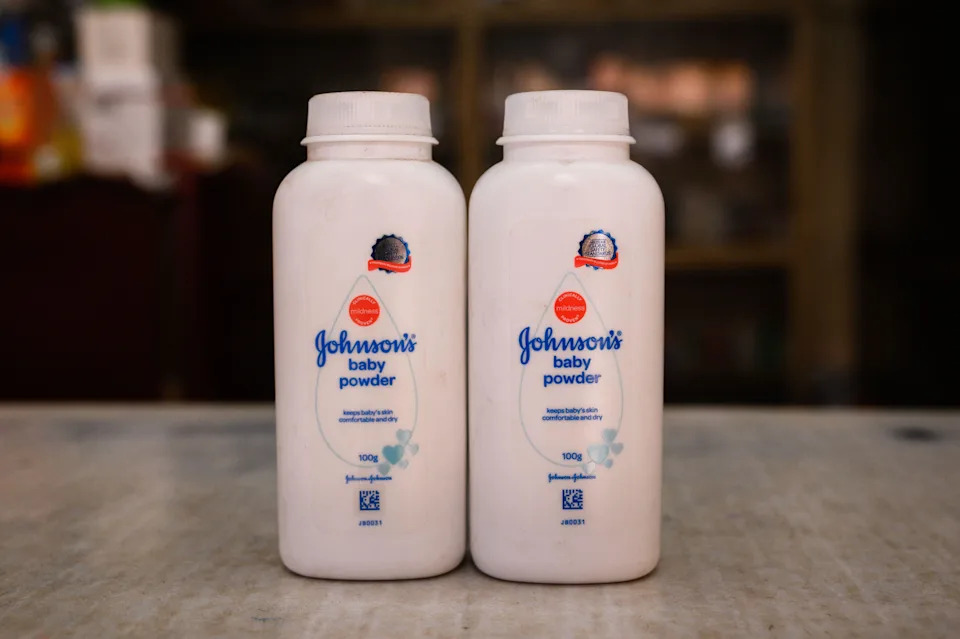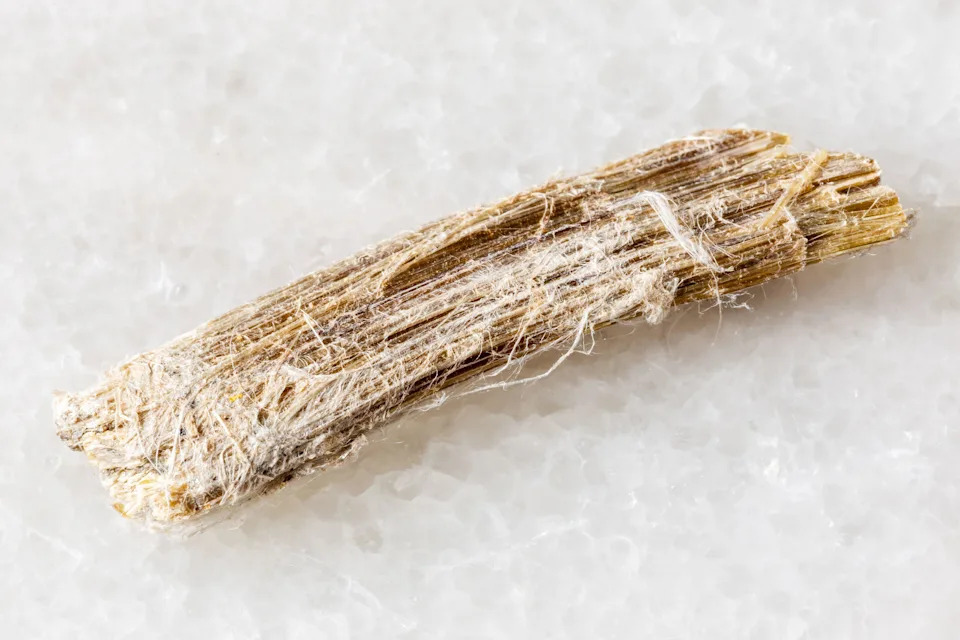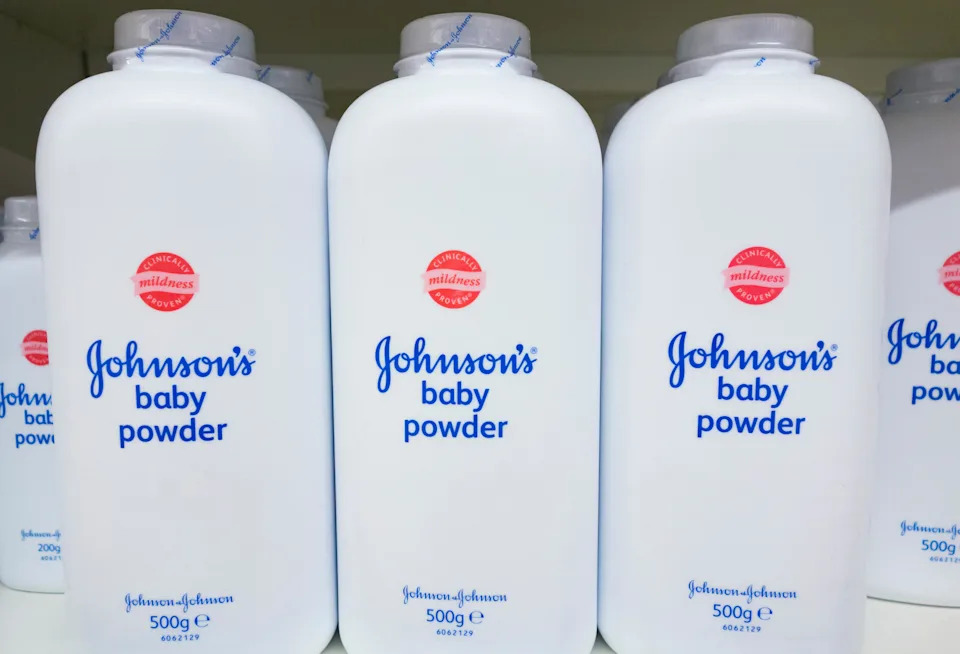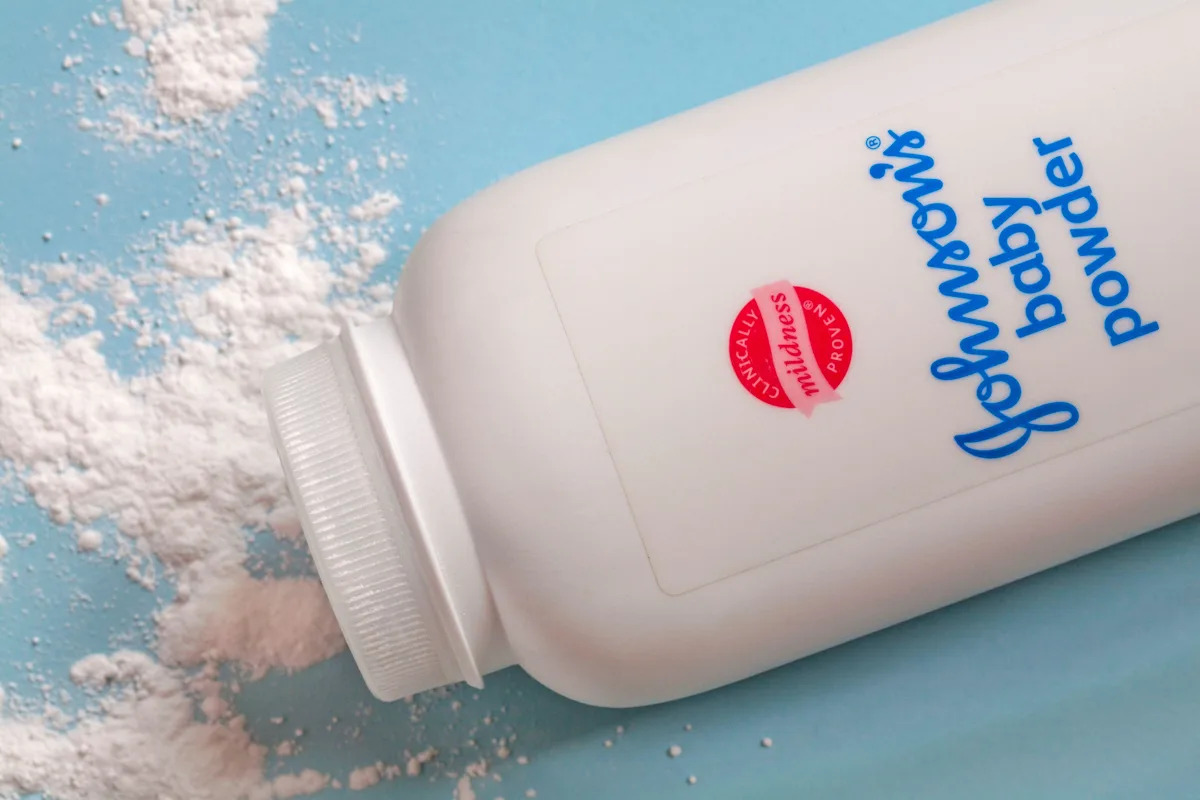Thousands of people are launching a collective legal challenge against healthcare giant Johnson & Johnson (J&J), claiming it knowingly sold asbestos-contaminated talcum powder in the UK.
In a group action filed at London’s High Court on Thursday (16 October), more than 3,000 claimants – primarily women and families of relatives who have died – claim the company’s Johnson’s Baby Powder was contaminated with asbestos, causing ovarian cancer, mesothelioma and related illnesses.
Represented by law firm KP Law, the suit targets J&J, its former management arm and spin-off Kenvue UK, and could result in compensation pay-outs in the hundreds of millions.
The case echoes a US litigation and comes after J&J phased out talc in its UK baby powder in 2023.
A spokesperson for Kenvue, which was formerly part of J&J, told Yahoo News UK: “We sympathise deeply with people living with cancer.
“We understand that they and their families want answers – that’s why the facts are so important.

Johnson & Johnson phased out talc in its UK baby powder in 2023. (PA)
“The safety of Johnson’s Baby Powder is backed by years of testing by independent and leading laboratories, universities and health authorities in the UK and around the world.
“The high-quality cosmetic grade talc that was used in Johnson’s Baby Powder was compliant with any required regulatory standards, did not contain asbestos, and does not cause cancer.”
J&J reiterated Kenvue’s statement when approached by Yahoo News.
What are they accused of?
J&J is accused of knowingly selling talc-based baby powder contaminated with asbestos fibres for nearly six decades, from the 1960s to 2023, without warning consumers of the risks.
KP Law argue that the company concealed internal knowledge of contamination, suppressed unfavourable test results, lobbied regulators to maintain sales and funded studies to minimise health concerns – all to safeguard profits and brand reputation.
Michael Rawlinson KC, representing the group, stated in court filings that “there exist very few, if any, commercially exploited talc deposits in the world which do not contain asbestos,” and that J&J’s suppliers were no exception.
He cited company memos, mine reports and scientific literature that allegedly informed J&J of the dangers as early as the 1970s, yet the firm allegedly “acted in bad faith” by prioritising sales over safety.
Janet Fuschillo, who is one of the people in the case, said she had used J&J’s baby powder since the 1960s, and that she was diagnosed with ovarian cancer seven years ago.

Johnson & Johnson is accused of knowingly selling talc-based baby powder contaminated with asbestos fibres for nearly six decades. (Getty)
The 75-year-old said: “I used talc on myself and all four of my children because we were told it was pure, and it was good for you.
“I used talc when I changed nappies, after baths, all the time, for close to 50 years. It’s a source of great concern and anger that I used talc on my children.”
Patricia Angell said her husband Edward died in 2006 aged 64, a few weeks after being diagnosed with mesothelioma.
She described him as a “perfectly fit, healthy man” who worked as an electrician and knew about asbestos.
She said: “Talc was mentioned on Edward’s autopsy report, along with asbestos strains found in contaminated talc.”
What is asbestos and how does it impact the lungs?
Asbestos is a group of naturally occurring fibrous minerals once prized for their heat resistance and durability, but now infamous as a carcinogen.
Mined from the earth, its microscopic fibres – which are too fine to see – can become airborne and inhaled or ingested, lodging in tissues like the lungs or ovaries.
When inhaled, asbestos fibres irritate lung linings, triggering chronic inflammation and scarring, known as asbestosis.

Asbestos can become airborne and inhaled or ingested, lodging in tissues like the lungs or ovaries. (PA)
Over time – as much as decades – this can lead to mesothelioma, a rare, aggressive cancer almost exclusively linked to asbestos exposure, that forms in the lung or abdominal lining.
Symptoms include breathlessness, chest pain and persistent cough, often appearing 20-50 years after initial contact.
Talc’s application, involving shaking or squeezing the bottle, creates lingering “clouds” of powder, amplifying inhalation risks.
Ovarian cancer links stem from genital use, where fibres may travel internally. The World Health Organization classified talc as “probably carcinogenic” in 2024.
When did they stop selling the product?
J&J discontinued talc-based Baby Powder in the UK – and globally – in 2023, switching to a cornstarch alternative.
The move followed years of declining demand amid US lawsuits and safety scrutiny. J&J said it was a “commercial decision” to streamline its portfolio.
The company had halted sales in the US and Canada in 2020, citing “misinformation” about talc’s safety, but continued elsewhere until the global phase-out.
What is the US lawsuit about?
The US talc litigation dwarfs the UK case, with over 67,000 lawsuits alleging J&J’s baby powder and products like Shower to Shower caused ovarian cancer, mesothelioma and other malignancies through asbestos contamination.
The vast majority of the lawsuits involve ovarian cancer claims.

Over 67,000 lawsuits in the US allege Johnson & Johnson’s baby powder caused ovarian cancer. (PA)
J&J has sought to resolve the litigation through bankruptcy, a proposal that has been rejected three times by federal courts.
Plaintiffs claim the company knew of risks since the 1950s but hid them, manipulated testing methods and marketed aggressively to women.
Over $13 billion has been paid out or set aside for the lawsuits. On 7 October 2025, a Los Angeles jury ordered Johnson & Johnson to pay $966 million to the family of Mae Moore, a California resident who died at age 88 in 2021 from mesothelioma.
Erik Haas, Johnson & Johnson’s worldwide vice president of litigation, said that the company plans to immediately appeal, calling the verdict “egregious and unconstitutional.”
“The plaintiff lawyers in this Moore case based their arguments on ‘junk science’ that never should have been presented to the jury,” Haas said.
Trey Branham, one of the attorneys representing Moore’s family, said after the verdict that his team is “hopeful that Johnson & Johnson will finally accept responsibility for these senseless deaths.”

